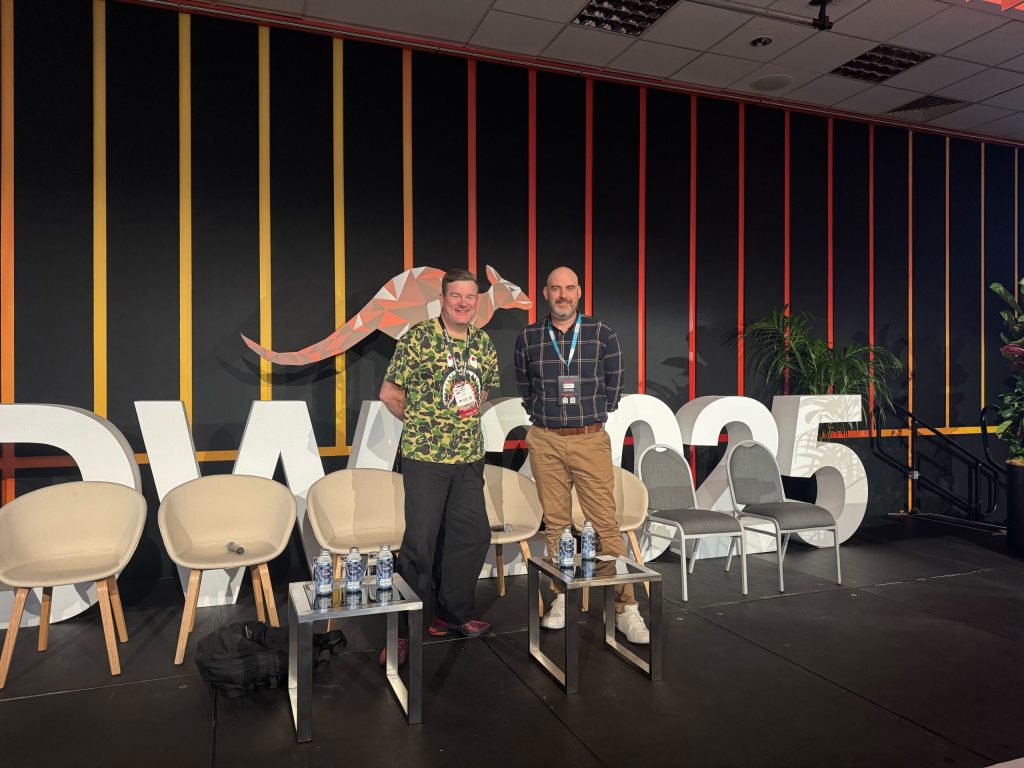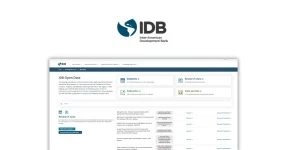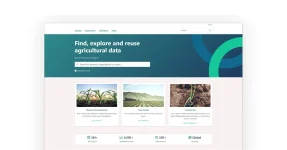Two weeks ago, I attended International Data Week (IDW) 2025 in Brisbane, which was my first time at this remarkable global gathering. Although I’ve been to plenty of technical, open-source, open-government, and community-driven conferences, this one was something different. Here, the conversations were rooted in the scientific method, in the philosophy of knowledge, and in the artful, practical, and theoretical use of data for research that truly matters on a global scale.

Scott Lingard, Chief Revenue Officer, Link Digital (right)
Why I went
What drew me to IDW wasn’t only the impressive program of speakers and panels (though there were many). It was my own drive to bring more research and method-oriented value into the data capabilities we deliver at Link Digital. That is, to strengthen the confidence our clients have in their data in an era where AI, cybersecurity, and social cohesion increasingly overlap.
In global terms, we’re in what many call a polycrisis, where multiple interconnected disruptions are challenging the ways societies govern, share, and trust information.
I came to IDW with a sense that a similar polycrisis exists within the open data movement itself: a crisis of coherence and purpose in how we use openness as a driver of innovation, transparency, and social contracting across the many economies of knowledge and sharing.
What I learned
What I took away from IDW 2025 was a clearer sense of the reciprocity between the open data and research data communities. Each has something profound to teach the other.
- The open data community must look back to the fundamentals of knowledge practice. When we make programs, initiatives, and systems of information “open,” we should do so as part of a deeper hypothesis and situate this as part of a living experiment to discover and demonstrate objective value from our public data initiatives.
- The research data community, in turn, must look beyond methodological rigor and peer-review survivorship to the fundamentals of value. Research must consider its civic and social worth and situate this as part of a value chain of shared understanding, trust, and progress beyond its own disciplinary boundaries.
A shared horizon
Leaving IDW, I was convinced that civics, citizenship, knowledge, and agreement need to converge. Only through this convergence can a new grand practice emerge, something akin to a new enlightenment. Our complex challenges are living, informational mosaics which require data practitioners that integrate the openness and transparency of the civic world with the methodological precision of the research world.
The bridge between the two isn’t just data, it’s trust, method, and meaning working together.



